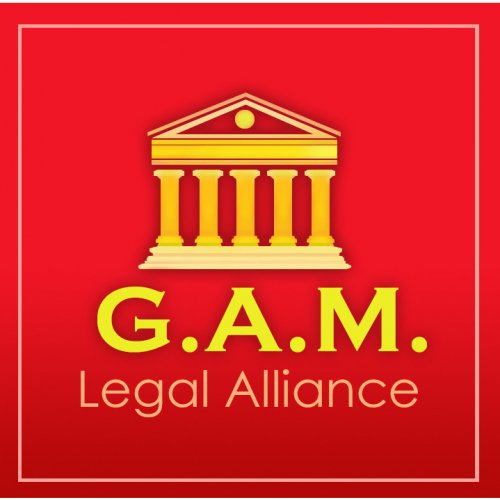Best Housing, Construction & Development Lawyers in Bangkok
Share your needs with us, get contacted by law firms.
Free. Takes 2 min.
Free Guide to Hiring a Real Estate Lawyer
List of the best lawyers in Bangkok, Thailand
Legal guides written by SIAM LEGAL INTERNATIONAL:
- Defamation Laws in Thailand: Criminal Charges and Civil Suits
- The State of Thailand’s Long-Term Resident (LTR) Visa Program in 2025
- The Penalties Of Not Filing Your Income Tax Return As A Foreigner In Thailand
Legal guides written by Smart Legal Solutions:
- Main Legal Measures to Protect Foreign Investment in Thailand
- The importance of the geographical indications for the Thai economy
Thailand Housing, Construction & Development Legal Questions answered by Lawyers
Browse our 1 legal question about Housing, Construction & Development in Thailand and read the lawyer answers, or ask your own questions for free.
- Property in Phuket
- I bought a property in Phuket in 2019 and it should be completed at the end of 2021 but the project was delayed. I paid nearly full payment but now I cannot contact the project owner anymore. Please kindly advise what I should do. Thanks.
-
Lawyer answer by GPS Legal
Thank you for your question. My name is Dave Lind, Director-Client Services at GPS-Legal. GPS has extensive experience in property matters in Thailand. In terms of what you should do, if you have exhausted your ability to rectify this situation...
Read full answer
Thailand Housing, Construction & Development Legal Articles
Browse our 4 legal articles about Housing, Construction & Development in Thailand written by expert lawyers.
- How Foreigners Can Own Property in Thailand
- For foreigners considering property ownership in Thailand, understanding the process and relevant laws is crucial. These laws are not typically compared to the property ownership laws of other countries, as the Kingdom strictly regulates which foreigners can own property, the circumstances under which they can do so, and the types... Read more →
- Condominium Ownership in Thailand: What Foreigners Need to Know
- Thailand's attractiveness as a prime property investment destination continues to attract foreign investors, particularly in the condominium market. The rich cultural makeup of the country, picturesque landscapes, and a flourishing tourism industry make Thailand an appealing prospect. However, successfully becoming a condominium owner in Thailand demands a nuanced understanding of... Read more →
- Understanding Thailand's Land Ownership Laws: A Guide for Foreign Investors
- When it comes to buying property in a foreign country, the legal landscape can often seem like a labyrinth of confusing regulations and restrictions. Thailand, a popular destination for foreign investors, is no exception. Many prospective property buyers find themselves bewildered by terms like "chanote," "concrete acts," and "usufruct." However,... Read more →
About Housing, Construction & Development Law in Bangkok, Thailand
Housing, Construction & Development law in Bangkok, Thailand is an intricate field that encompasses various regulations and legal requirements pertaining to land use, building regulations, zoning laws, and real estate transactions. As Bangkok is a rapidly evolving metropolis, the legal framework must accommodate the city's dynamic urban development while balancing housing needs, investment opportunities, and cultural conservation. This area of law involves regulations and practices enforced by both local and national governments, affecting developers, investors, property owners, and tenants.
Why You May Need a Lawyer
Legal assistance in Housing, Construction & Development might be necessary for several reasons:
- Buying, selling, or leasing property: To ensure that all transactions comply with Thai property laws and regulations.
- Construction disputes: Resolving conflicts with contractors or addressing quality and safety violations in construction projects.
- Zoning issues: Obtaining permits or addressing improper land use claims.
- Dispute resolution: Handling tenant-landlord disputes or co-ownership disagreements.
- Regulatory compliance: Navigating changes in local laws and regulations affecting property and development plans.
- International investors: Guiding foreign nationals in understanding the legal restrictions and processes in real estate transactions.
Local Laws Overview
There are several key laws and regulations relevant to Housing, Construction & Development in Bangkok:
- Building Control Act: Governs construction permits, building designs, and safety requirements to ensure public safety and urban order.
- Town and City Planning Act: Establishes zoning laws that regulate land use planning and urban development, crucial for managing Bangkok's urban growth.
- Land Code: Regulates land ownership, transfers, and restrictions on land use, particularly for foreign entities and individuals.
- Condominium Act: Pertains to the ownership and management of condominium projects, including ownership rights and association rules.
- Environmental Act: Enforces regulations regarding environmental protection in construction and development projects to minimize ecological impact.
Frequently Asked Questions
How can foreign nationals own property in Bangkok?
Foreign nationals are allowed to own condominiums in their name, provided that no more than 49% of the total space in the condominium building is owned by foreigners. However, they cannot directly own land and typically engage in long-term lease agreements or establish Thai-based companies for ownership purposes.
What are the common zoning laws I should be aware of?
Zoning laws in Bangkok dictate the permitted uses of land areas, including residential, commercial, and industrial. These laws influence where properties can be developed and the types of development allowed in different zones.
How do I apply for a construction permit in Bangkok?
To apply for a construction permit, you must submit an application to the local district office along with relevant architectural designs and plans that comply with the Building Control Act.
What should I consider when entering a construction contract?
It's essential to include detailed specifications, timelines, payment terms, and resolution mechanisms for disputes. Legal review is advised to ensure compliance with Thai laws and protect all parties' interests.
Are there special considerations for investing in Bangkok real estate?
Investors should be aware of the local market dynamics, legal restrictions on foreign ownership, taxation requirements, and the potential for political and economic changes affecting real estate values.
What rights do tenants have under Thai law?
Tenants' rights include security of tenure, the right to habitable housing conditions, and protection against unlawful eviction. Lease agreements should be clear on both parties' obligations.
How are housing disputes typically resolved?
Disputes can often be resolved through mediation, arbitration, or legal proceedings, depending on the nature of the conflict and the terms of contracts such as leases or sales agreements.
Is environmental approval required for all construction projects?
Environmental approval is required for projects that may significantly impact the environment, particularly large-scale developments. Compliance with the Environmental Act is mandatory.
Are there any incentives for sustainable development?
The Thai government may offer incentives for projects that focus on sustainability and eco-friendly practices, though these are subject to change and should be verified with current policies.
What should I do if I encounter a violation in construction standards?
You should report the violation to local authorities and consult with a lawyer to explore legal options for addressing the non-compliance.
Additional Resources
For additional help, consider reaching out to the following resources:
- Thailand Real Estate Information Center (REIC)
- Thai Chamber of Commerce
- Board of Investment Thailand
- Legal offices specializing in real estate and construction law
- Local government planning and development offices
Next Steps
If you need legal assistance in Housing, Construction & Development, consider contacting a lawyer who specializes in real estate or construction law in Thailand. They can provide tailored advice based on the specific circumstances of your case. Make sure to gather all relevant documents and information related to your situation before your consultation to ensure a comprehensive legal evaluation.
Lawzana helps you find the best lawyers and law firms in Bangkok through a curated and pre-screened list of qualified legal professionals. Our platform offers rankings and detailed profiles of attorneys and law firms, allowing you to compare based on practice areas, including Housing, Construction & Development, experience, and client feedback.
Each profile includes a description of the firm's areas of practice, client reviews, team members and partners, year of establishment, spoken languages, office locations, contact information, social media presence, and any published articles or resources. Most firms on our platform speak English and are experienced in both local and international legal matters.
Get a quote from top-rated law firms in Bangkok, Thailand — quickly, securely, and without unnecessary hassle.
Disclaimer:
The information provided on this page is for general informational purposes only and does not constitute legal advice. While we strive to ensure the accuracy and relevance of the content, legal information may change over time, and interpretations of the law can vary. You should always consult with a qualified legal professional for advice specific to your situation.
We disclaim all liability for actions taken or not taken based on the content of this page. If you believe any information is incorrect or outdated, please contact us, and we will review and update it where appropriate.

















